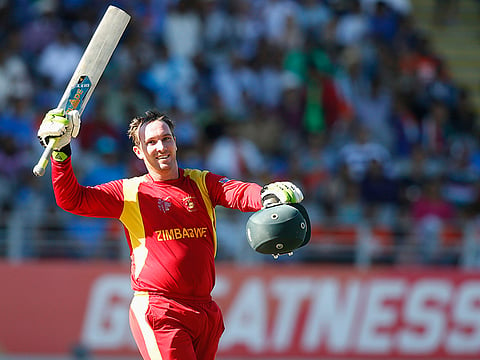Brendan Taylor faces three and-half-year ban from cricket by ICC
Ex-Zimbabwe captain second biggest name from his country after Streak to fall from grace

Kolkata: Former Zimbabwe captain Brendan Taylor became the second biggest casualty from his country, after Heath Streak, to succumb to corruption charges as he was expectedly banned by the International Cricket Council (ICC) from all cricket for three and-a-half years on Friday after he accepted breaching four charges of the ICC Anti-Corruption Code and another one on the ICC Anti-Doping Code.
Early last year, Heath Streak - another former captain and a much respected name in franchise cricket as a coach and mentor, was handed a eight-year ban after being charged with - and admitting to five breaches of the anti-corruption code, including accepting a payment in bitcoins from a potential corruptor.
The charges painted a picture of Streak as a facilitator of approaches by a corruptor to people within teams he was a part of and also included one charge of disclosing inside information pertaining to matches during a 2018 tri-series involving Zimbabwe, Bangladesh and Sri Lanka, a Zimbabwe-Afghanistan series in 2018, the 2018 IPL and the 2018 APL.
Alex Marshall, ICC General Manager – Integrity Unit, said in a statement: “Brendan is a former international captain who represented Zimbabwe for 17 years. Over such a long career, he participated in numerous anti-corruption and anti-doping education sessions and knew exactly what his obligations were under the ICC Anti-Corruption and Anti-Doping Codes.
“It is disappointing that a player of his experience chose not to fulfil those obligations, however he has accepted all charges, which has been reflected in the sanction. I would echo Brendan’s message to other players to report approaches as soon as they happen so any corrupt activity can be disrupted at the earliest possible opportunity. We wish Brendan well in his rehabilitation.”
Taylor, a key batsman and leader of the Zimbabwe national through it’s several ups and downs, chose to admit the charges under the provisions of the ICC Anti-Corruption Code and agreed a sanction with the ICC in lieu of an Anti-Corruption Tribunal hearing.
His violation under the ICC Anti-Doping Code, which is separate and independent of the anti-corruption charges, resulted from an in-competition test conducted on September 8, 2021 following Zimbabwe’s match against Ireland. Taylor tested positive for the stimulant Benzoylecognine, a cocaine metabolite, which is specified as a Substance of Abuse under the Code.
Taylor has accepted a one-month period of ineligibility for the violation under Article 2.1 – the minimum allowed under the Code. Taylor’s period of ineligibility was reduced to one month because he was able to establish that he had ingested the substance out of competition, that it was unrelated to sport performance, and because he is currently undergoing a rehabilitation treatment programme.
This one-month suspension will run concurrently with the suspension of three and a half years under the ICC Anti-Corruption Code. Taylor will be free to resume his involvement in the game on July 28, 2025.
Following are the charges levelled against Taylor:
1. Article 2.4.2 – Failing to disclose (without unnecessary delay) the receipt of any gift, payment, hospitality or other benefit that (a) the participant knew or should have known was given to them to procure a breach of the Code or (b) that was made or given in circumstances that could bring the participant or the sport of cricket into disrepute.
2. Article 2.4.3 - Failing to disclose to the ACU (without unnecessary delay) receipt of gifts/hospitality with a value of US$750 or more regardless of the circumstances in which they were given.
3. Article 2.4.4 – Failing to disclose to the ACU (without unnecessary delay) full details of the approach received to engage in corrupt conduct under the Code including in relation to Zimbabwe’s then upcoming series against Sri Lanka and/or Bangladesh.
4. Article 2.4.7 – obstructing or delaying an ACU investigation, including concealing, tampering with or destroying any documentation or other information that may be relevant to that investigation and / or that may be evidence of or may lead to the discovery of evidence of corrupt conduct under the ICC Anti-Corruption Code.
Sign up for the Daily Briefing
Get the latest news and updates straight to your inbox



